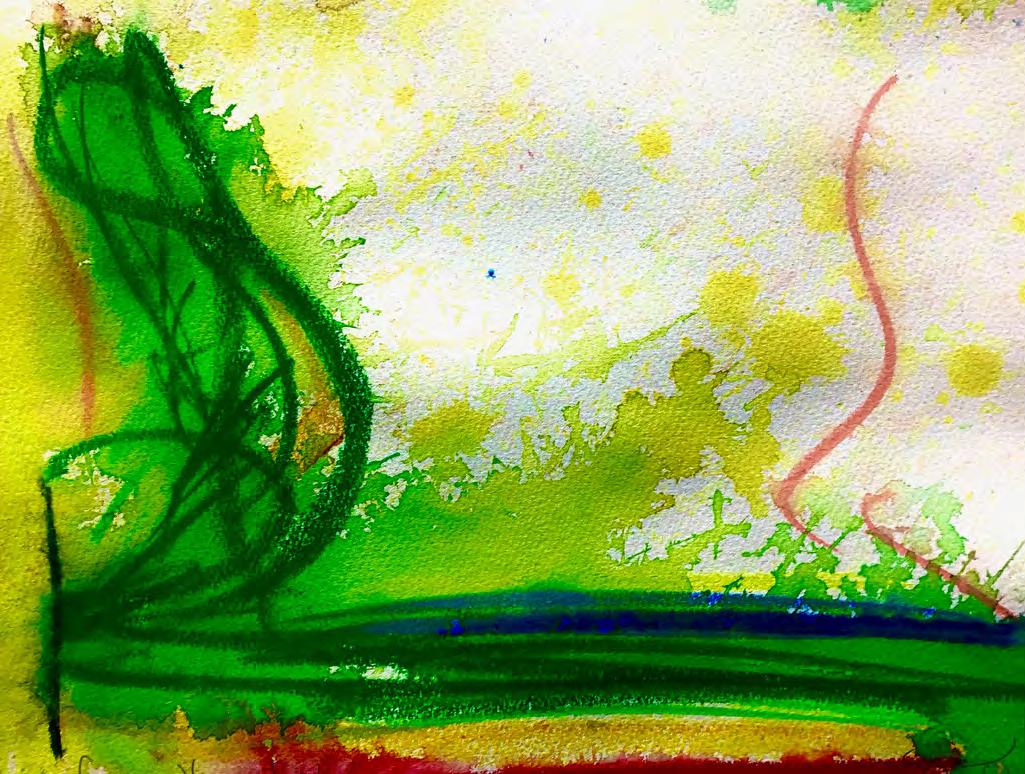Isolation in Camus’s L’Étranger Ava Dean-Smith (NC L6) The novel L’Étranger (The Stranger), was published in 1942, and was written by Albert Camus, a French-Algerian author and journalist. Although he didn’t consider himself to be a philosopher, he is often associated with absurdism – which is the belief that the universe is irrational and meaningless, and that the search for order brings the individual into conflict with the universe. The Stranger indicates Camus’s philosophical stand as an absurdist, as the novel suggests that there is no logical meaning to life, and we can’t make sense of it at all. Meursault, the protagonist and narrator, is a young man living in Algeria slightly before the Second World War. He finds out that his mother has died and takes a bus to her old people’s home. However, he declines the offer of seeing his mother in her coffin; he instead smokes and sleeps until her funeral the following day. Having returned to Algiers, he bumps into Marie, who used to be his co-worker, and they go on a date to see a comedy film; later in the novel the two become engaged. The climax of the story is when Meursault commits murder – he shoots a man for no apparent reason and is arrested. The jury are disgusted by his lack of remorse over his crime, and his absence of grief following his mother’s death: thus, he is sentenced to death. The prosecutor calls Meursault a monster and says that his lack of morality poses a threat to society. You may be wondering how this links to the wider themes of this publication, but isolation is actually a momentous theme in The Stranger. Meursault is an outcast in society and is isolated from his friends, fiancée, human emotions and, ultimately logic. The Stranger illustrates how judgemental society can be, and how we tend to isolate people who do not conform to societal norms and defy social expectations. Meursault chose to ignore the pre-determined rules of mankind and this upset the order of society. He does not sympathise with the people at his mother’s funeral and does not appear to be sad about her passing: this is demonstrated when Marie unwillingly testifies that they saw a comic film the day after his mother’s funeral and that he didn’t seem sorrowful in the slightest. The most distinguishing example of Meursault’s detachment from this world is his rejection of the caretaker’s offer to see his mother one final time. He sees little change in his life, whether she is dead or alive, owing to how isolated he’s made himself from her. He understands how he is supposed to feel, and tries to love her, but since he has distanced himself so much, he just can’t feel the emotions he knows he should be feeling. Despite this, he avoids thinking too deeply about the way he is and the way he acts, because analysing these things would make it worse. Meursault’s isolation is self-imposed, and this can be seen towards the end of the novel in his utter reluctance to lie about himself in order to sway things in his favour. He is aware that his case is not going well, but he keeps on refusing to say anything that he doesn’t truly believe – he digs himself deeper into the hole he has already made for himself. It is self-inflicted because Meursault believes life is absurd and has no meaning, and he remains an outcast because he shows no compassion towards humanity. After his trial, Meursault finally acknowledges his position as an outsider or a ‘stranger’ in society. The concluding lines of the novel are: ‘I opened myself to the gentle indifference of the world. Finding it so much like myself- so like a brother, really - I felt that I had been happy and that I was happy again. For everything to be consummated, for me to feel less alone, I only wish that there be a large group of spectators the day of my execution and that they greet me with cries of hate.’ This suggests he has, at last, come to terms with his emotions, and is at peace with the universe – he has fully disconnected himself from society’s expectations. In my opinion, isolation was liberating for Meursault as it enabled him to accept who he was, instead of letting society dictate that his abnormal behaviour portrayed him as an unloving criminal or a ‘stranger’.
119






































